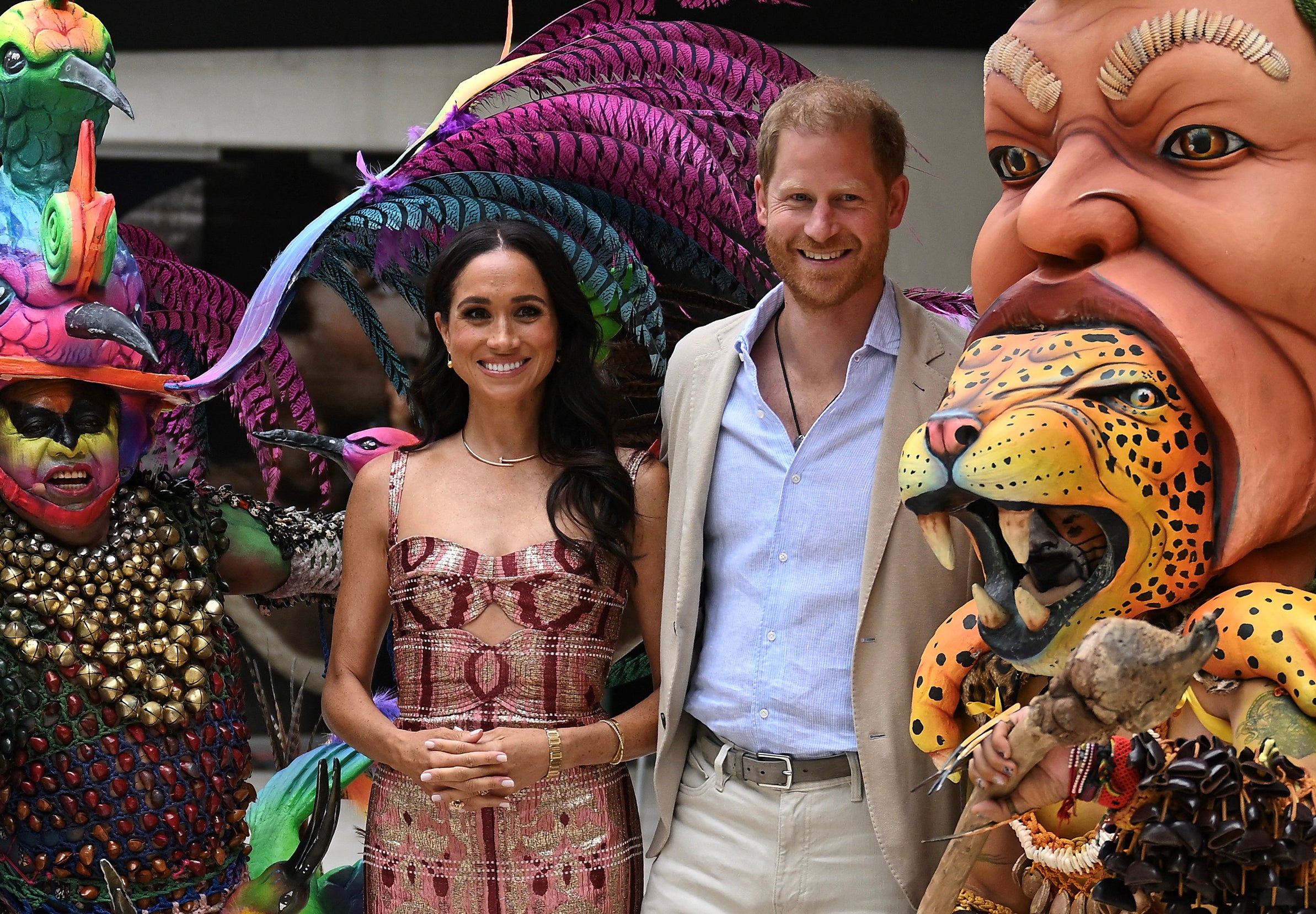The Independent's journalism is supported by our readers. When you purchase through links on our site, we may earn commission.
¡Basta! It’s time Brits abroad gave up trying to speak the local lingo
As Prince Harry fluffs magnificently his attempt to say ‘thank you’ in Spanish during the Sussexes’ tour of Colombia, Flic Everett explains why, on holiday, Englishmen in particular get lost in translation


Harry and Meghan have been enthusiastically welcomed on their not-very-official visit to Colombia. Amid all the hanky waving, the salsa dancing and the oily exchanges of compliments, the ex-royal couple also made the effort to speak Spanish. The Duchess of Sussex learned hers while in Argentina… and we can reasonably assume that Harry was relying on hasty prompts from the DuoLingo owl.
Alejandro Eder, the mayor of Cali, was apparently “impressed” by the duke’s Spanish, which was “actually quite good”, despite his cry of “muchos gracias”, a mispronunciation deployed by Englishmen abroad since the dawn of cheap flights to Benidorm.
I sympathise, thanks to terrible flashbacks to a trip to Paris many years ago. Sitting in a brasserie alone, feeling sophisticated, I rummaged through my sparse memory bank of O-level French and came up with: “Un café, s’il-vous plaît.”
The waiter looked at me as though I was a dismembered lizard the cat had left behind.
“Pardon?” he barked. I repeated myself, he affected a look of weary confusion. I ended up miming like Marcel Marceau, pouring imaginary coffee in a wild physical pantomime.
“Oh, you want a coffee?” He sniffed. “You should have asked in English.”
My bitter experience is reflected in a comedy Facebook reel depicting a French waiter ripping the confidence from a nervous British diner trying to order. “What are you doing?” he demands, in a perfect example of the ritual humiliation dished out by these men. I can’t laugh, it’s too painful.
Yet despite our appalling language skills, our fumbling attempts to manage “Two beers please” without accidentally summoning an ambulance, or ask “Where is the chemist?” without mortally offending someone’s mother, as a nation, we like to make an effort. Whether it’s mangled Franglais or German with a hint of Japanese, the plucky Brit has always believed that it’s flattering to our hosts to attempt their language, rather than simply join them in speaking perfect English.
If it’s not the translation, however, it’s often the accent. I once had a friend who prided herself on her Spanish pronunciation. She couldn’t say “paella”, she had to croon “pie-eh-ya”. She’d never visited Barcelona, she had always been to “Bha-theh-lon-hah”.
I, like many women, have cringed through dinner dates as my show-off companion refuses to simply order “Chilli pasta, please”, and instead mangles his way through arrabiatta con salsiccia while a patient bilingual waiter notes down “chilli pasta”.
While foreign dignitaries dance effortlessly through diplomatic speeches in impeccable English, ours blunder and hazard, tripping over verbs and banging into nouns.
Tony Blair, highly confident in his linguistic abilities, once agreed to hold a press conference in French. Intending to say “I admire Lionel Jospin in many ways”, he instead boldly remarked: “I desire Lionel Jospin in many different positions.”
John F Kennedy, too, was widely mocked for announcing “Ich bin ein Berliner”, which in theory translated as “I am a doughnut”.
Sometimes, they simply decide nobody should learn European languages at all. In 2013, ex-PM and foreign secretary David Cameron announced: “It’s time to look beyond the traditional focus on French and German and get many more children learning Mandarin.” His own grasp of the notoriously complex language remains unproven.
It’s all deeply embarrassing – although it’s not just us. Emmanuel Macron once described the wife of the Australian prime minister as “delicious”, though thankfully failed to cause an international incident – unlike US president Jimmy Carter who, in 1977, announced that he was happy to grasp Poland’s private parts.
Britain, however, is surely the country most lost in translation. It might, in fact, be best for everyone if we simply accept that we are not a nation of cunning linguists. Mange tout, Rodney, mange tout.






Join our commenting forum
Join thought-provoking conversations, follow other Independent readers and see their replies
Comments